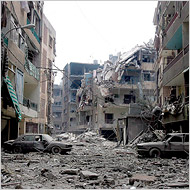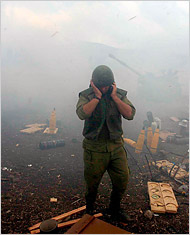Entered into the database on Saturday, July 22nd, 2006 @ 18:24:25 MST
The Replenishing of Israeli WMD stockpiles points to escalation both
within and beyond the borders of Lebanon "War is Good for Business": More Contracts for America's
Weapons Producers The aerial attacks on Lebanon have contributed to fuellng the US military industrial
complex in what essentially constitutes a "profit driven war". The Israeli air force confirms that it has led 3000 sorties hitting some 1,800
targets since the beginning of the bombing campaign (BBC, 22, July 2006). According
to UN sources, close to a million people have been displaced out of a total
population of 3.8 million. The country's civilian infrastructure has been destroyed.
In contrast to the "shock and awe" March 2003 blitzkrieg over Iraq,
the Israelis have aimed systematically and almost exclusively civilian targets.
Moreover, Lebanon is defenseless. It does not possess an air defense system
and the Israelis know it. The number of declared targets is staggering, even
when compared, for instance, to the 300 selected strategic targets identified
in the 1991 Gulf war. The civilian infrastructure has been destroyed: water, telecommunications,
bridges, airports, gas stations, power plants, dairy factories, etc. Confirmed
by the British press, in towns and villages across Lebanon, schools and hospitals
have been targetted with meticulous accuracy. in an utterly twised logic, the
Israeli government has casually blamed Hizbollah for using the schools and hospitals
as hideouts or launchpads to wage their terrorist activities. (ABC Australia,
interview with Israeli Ambassador to Australia, Nati Tamir, 21 July 2006). "This is not a war, this is a crisis" To state that the war was triggered by the capture of two Israeli soldiers
by Hizbollah militants on July 12th is absurd. The history of war and military planning is not an object of analysis by the
Western media. The real causes and consequences of what continues to be described
by the Western media as the "Lebanon crisis" remain unheralded. Civilian
deaths are dismissed as inevitable. The humanitarian crisis is downplayed. The
issue of Israeli sponsored war crimes is never mentioned. And the Israelis are
now blocking the flow of humanitarian aid into Lebanon. Realities are turned upside town. The level of media disinformation and coverup
of what is actually happening in the war theater is staggering. A military operation of this magnitude takes months to prepare. The decision
to bomb Lebanon was taken well before July 12. The war on Lebanon is part of
a broader Middle East military agenda which has been in the planning stage for
more than a year. In very concrete terms, the bombing raids consist in destroying a nation, in
"wiping Lebanon off the map", to use a familiar expression, in a righteous
act of "self-defense" by Israel, according to the Western media. Is Israel running out of bombs? To meet shortfalls in current stockpiles of WMD, Israel's IDF is to take delivery
of an emergency shipment of precision guided bombs, including US made GBU-28
bunker buster bombs produced by Raytheon. "Pentagon and military officials declined to describe in detail the
size and contents of the shipment to Israel, and they would not say whether
the munitions were being shipped by cargo aircraft or some other means. But
an arms-sale package approved last year provides authority for Israel to purchase
from the United States as many as 100 GBU-28’s, which are 5,000-pound
laser-guided bombs intended to destroy concrete bunkers. The package also
provides for selling satellite-guided munitions. An announcement in 2005 that Israel was eligible to buy the “bunker
buster” weapons described the GBU-28 as “a special weapon that
was developed for penetrating hardened command centers located deep underground.”
The document added, “The Israeli Air Force will use these GBU-28’s
on their F-15 aircraft.”" (NYT, 21 July 2006) This proposed shipment is described by military observers as somewhat "unusual".
Israel already has a large stockpile of precision guided weapons. In addition
to its own stockpiles, the IDF took delivery in 2005 of some 5000 US made "smart
air launched weapons" including some 500 'bunker-buster
bombs. Why would Israel all of sudden need to replenish its stockpile of Weapons of
Mass Destruction, to implement what continues to be described as a punitive
operation directed against Hizbollah? While the report suggests that "Israel still had a long list of targets
in Lebanon to strike", the history of these deliveries of bunker buster
bombs to Israel, suggests that they are also intended to be used in the broader
Middle Eastern region. Escalation: Syria and Iran At this particular juncture, the replenishing of Israeli stockpiles of deadly
bunker buster bombs points to an escalation of the war both within and beyond
the borders of Lebanon. The air campaign against Lebanon is inextricably related to US-Israeli strategic
objectives in the broader Middle East including Syria and Iran. In recent developments,
Secretary of State Condoleeza Rice has stated that the main purpose of her mission
to the Middle East is not to push for a ceasefire in Lebanon, but rather to
isolate Syria and Iran. (Daily Telegraph, 22 July 2006) A ground war has already started in Southern Lebanon. Aerial targets in Syria
are also contemplated. Syria's capital Damascus is less than 50 kilometers from
Lebanon's Bekaa valley, which has been the object of an extensive bombing campaign. Moreover, it is worth recalling that the first shipment of US made bunker buster
bombs in 2005 was delivered to Israel, in the eventuality of a US-Israeli attack
on Iran's nuclear facilities. "The Israeli target for the GBU-28 is no secret. For months Israeli
intelligence, political and policy operatives in the US have been presenting
a case that Iran is secretly developing nuclear weapons that threaten Tel
Aviv and other Israeli population centers" (http://www.irmep.org/GBU.htm) The plan for such an attack on Iran entered "the advanced stage of readiness"
in mid 2005. The Iran operation is still on the US-Israeli military agenda,
in partnership with Turkey and NATO. Moreover, a new draft resolution concerning Tehran's alleged nuclear weapons
program, slated to be submitted to the UN Security Council, suggests that military
action against Iran is being considered at the highest levls of the military
command structure. Under this plan, the Israeli Air Force would attack Iran's
nuclear facility at Bushehr using both US and Israeli produced bunker buster
bombs. Bear in mind that the bunker buster bombs can also be used to deliver
tactical nuclear bombs. The B61-11
is the "nuclear version" of the "conventional" BLU
113. It can be delivered in much same way as the conventional bunker buster
bomb. (See Michel Chossudovsky, http://www.globalresearch.ca/articles/CHO112C.html
, see also http://www.thebulletin.org/article_nn.php?art_ofn=jf03norris
) . Gbu 28 Guided
Bomb Unit-28 (GBU-28) Replenishing the Stockpiles of Israel's WMD The bombs which are now being rushed to Israel are the large 5000 lb GBU 28
bunker buster bombs, which can in one strike in an urban area kill literally
hundreds of people. The US claims that the bunker buster bomb is safe for the surrounding civilian
population, because the explosion is underground. Israel has stated that the
GBU 28 is to be used against Hizbollah, because Hizbollah has taken refuge in
deap underground bunkers: "Designed to penetrate hardened command centers located deep underground,
the GBU-28 is a 5,000-pound laser-guided bomb that uses a 4,400-pound penetrating
warhead and contains 630 pounds of high explosives." (http://www.irmep.org/GBU.htm) The GBU-28 has already been used in densely populated urban areas inside Lebanon.
The gruesome images of charred and mutilated bodies following these aerial bombings,
could indeed be the result of the use of the GBU-28, which is among the deadliest
weapons in the conventional arsenal (see below). "Israel’s need for precision munitions is driven in part by its
strategy in Lebanon, which includes destroying hardened underground bunkers
where Hezbollah leaders are said to have taken refuge, as well as missile
sites and other targets that would be hard to hit without laser and satellite-guided
bombs." (NYT, 21 July 2006) -------------------------------------------------------------------------------- A Medic inspects burned bodies of Lebanese civilians who were attacked
as they passed by a bridge that was targeted in north Saida, southern Lebanon,
July 17, Reuters 2006 _________________________________ U.S. Speeds Up Bomb Delivery for the Israelis By DAVID S. CLOUD and HELENE COOPER The Bush administration is rushing a delivery of precision-guided bombs to
Israel, which requested the expedited shipment last week after beginning its
air campaign against Hezbollah targets in Lebanon, American officials said Friday. The decision to quickly ship the weapons to Israel was made with relatively
little debate within the Bush administration, the officials said. Its disclosure
threatens to anger Arab governments and others because of the appearance that
the United States is actively aiding the Israeli bombing campaign in a way that
could be compared to Iran’s efforts to arm and resupply Hezbollah. The munitions that the United States is sending to Israel are part of a multimillion-dollar
arms sale package approved last year that Israel is able to draw on as needed,
the officials said. But Israel’s request for expedited delivery of the
satellite and laser-guided bombs was described as unusual by some military officers,
and as an indication that Israel still had a long list of targets in Lebanon
to strike. Secretary of State Condoleezza Rice said Friday that she would head to Israel
on Sunday at the beginning of a round of Middle Eastern diplomacy. The original
plan was to include a stop to Cairo in her travels, but she did not announce
any stops in Arab capitals. Instead, the meeting of Arab and European envoys planned for Cairo will take
place in Italy, Western diplomats said. While Arab governments initially criticized
Hezbollah for starting the fight with Israel in Lebanon, discontent is rising
in Arab countries over the number of civilian casualties in Lebanon, and the
governments have become wary of playing host to Ms. Rice until a cease-fire
package is put together. To hold the meetings in an Arab capital before a diplomatic solution is reached,
said Martin S. Indyk, a former American ambassador to Israel, “would have
identified the Arabs as the primary partner of the United States in this project
at a time where Hezbollah is accusing the Arab leaders of providing cover for
the continuation of Israel’s military operation.” The decision to stay away from Arab countries for now is a markedly different
strategy from the shuttle diplomacy that previous administrations used to mediate
in the Middle East. “I have no interest in diplomacy for the sake of returning
Lebanon and Israel to the status quo ante,” Ms. Rice said Friday. “I
could have gotten on a plane and rushed over and started shuttling around, and
it wouldn’t have been clear what I was shuttling to do.” Before Ms. Rice heads to Israel on Sunday, she will join President Bush at
the White House for discussions on the Middle East crisis with two Saudi envoys,
Saud al-Faisal, the foreign minister, and Prince Bandar bin Sultan, the secretary
general of the National Security Council. The new American arms shipment to Israel has not been announced publicly, and
the officials who described the administration’s decision to rush the
munitions to Israel would discuss it only after being promised anonymity. The
officials included employees of two government agencies, and one described the
shipment as just one example of a broad array of armaments that the United States
has long provided Israel. One American official said the shipment should not be compared to the kind
of an “emergency resupply” of dwindling Israeli stockpiles that
was provided during the 1973 Arab-Israeli war, when an American military airlift
helped Israel recover from early Arab victories. David Siegel, a spokesman for the Israeli Embassy in Washington, said: “We
have been using precision-guided munitions in order to neutralize the military
capabilities of Hezbollah and to minimize harm to civilians. As a rule, however,
we do not comment on Israel’s defense acquisitions.” Israel’s need for precision munitions is driven in part by its strategy
in Lebanon, which includes destroying hardened underground bunkers where Hezbollah
leaders are said to have taken refuge, as well as missile sites and other targets
that would be hard to hit without laser and satellite-guided bombs. Pentagon and military officials declined to describe in detail the size and
contents of the shipment to Israel, and they would not say whether the munitions
were being shipped by cargo aircraft or some other means. But an arms-sale package
approved last year provides authority for Israel to purchase from the United
States as many as 100 GBU-28’s, which are 5,000-pound laser-guided bombs
intended to destroy concrete bunkers. The package also provides for selling
satellite-guided munitions. An announcement in 2005 that Israel was eligible to buy the “bunker buster”
weapons described the GBU-28 as “a special weapon that was developed for
penetrating hardened command centers located deep underground.” The document
added, “The Israeli Air Force will use these GBU-28’s on their F-15
aircraft.” American officials said that once a weapons purchase is approved, it is up
to the buyer nation to set up a timetable. But one American official said normal
procedures usually do not include rushing deliveries within days of a request.
That was done because Israel is a close ally in the midst of hostilities, the
official said. Although Israel had some precision guided bombs in its stockpile when the campaign
in Lebanon began, the Israelis may not have taken delivery of all the weapons
they were entitled to under the 2005 sale. Israel said its air force had dropped 23 tons of explosives Wednesday night
alone in Beirut, in an effort to penetrate what was believed to be a bunker
used by senior Hezbollah officials. A senior Israeli official said Friday that the attacks to date had degraded
Hezbollah’s military strength by roughly half, but that the campaign could
go on for two more weeks or longer. “We will stay heavily with the air
campaign,” he said. “There’s no time limit. We will end when
we achieve our goals.” The Bush administration announced Thursday a military equipment sale to Saudi
Arabia, worth more than $6 billion, a move that may in part have been aimed
at deflecting inevitable Arab government anger at the decision to supply Israel
with munitions in the event that effort became public. On Friday, Bush administration officials laid out their plans for the diplomatic
strategy that Ms. Rice will pursue. In Rome, the United States will try to hammer
out a diplomatic package that will offer Lebanon incentives under the condition
that a United Nations resolution, which calls for the disarming of Hezbollah,
is implemented. Diplomats will also try to figure out the details around an eventual international
peacekeeping force, and which countries will contribute to it. Germany and Russia
have both indicated that they would be willing to contribute forces; Ms. Rice
said the United States was unlikely to. Implicit in the eventual diplomatic package is a cease-fire. But a senior American
official said it remained unclear whether, under such a plan, Hezbollah would
be asked to retreat from southern Lebanon and commit to a cease-fire, or whether
American diplomats might depend on Israel’s continued bombardment to make
Hezbollah’s acquiescence irrelevant. Daniel Ayalon, Israel’s ambassador to Washington, said that Israel would
not rule out an international force to police the borders of Lebanon and Syria
and to patrol southern Lebanon, where Hezbollah has had a stronghold. But he
said that Israel was first determined to take out Hezbollah’s command
and control centers and weapons stockpiles. Thom Shanker contributed reporting for this article
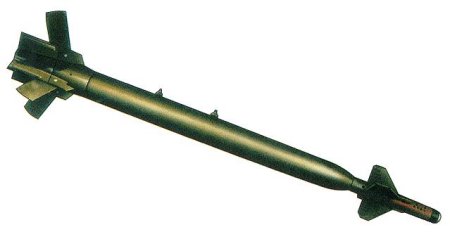
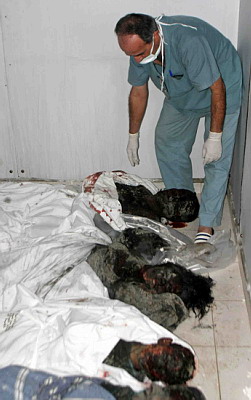
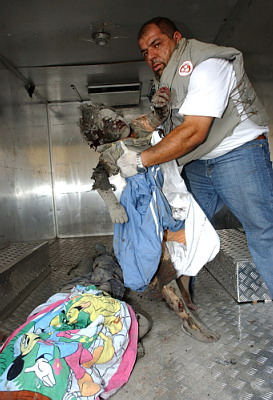
The
New York Times
Israel continued to drop leaflets, some of which have warned residents of southern Lebanon to leave the area. Tyler Hicks/The New York Times
